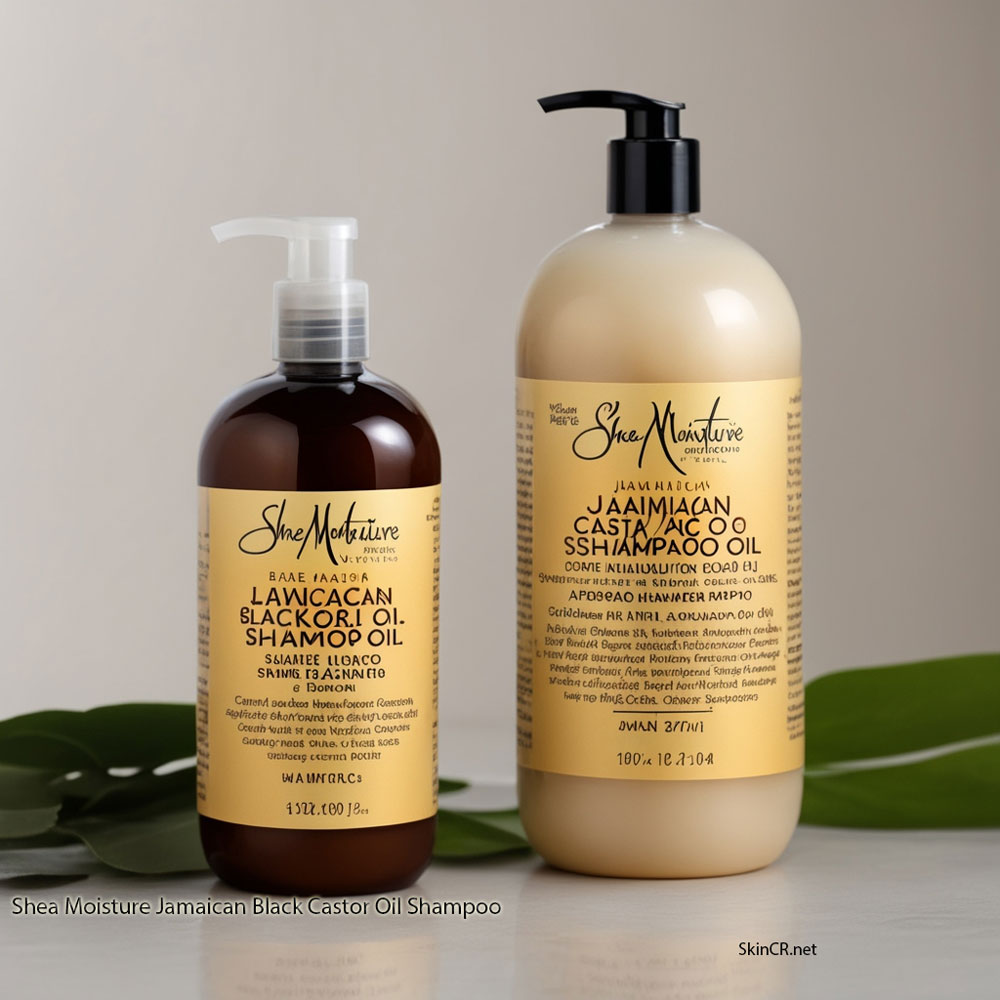In an era where the quest for healthier living is on the rise, it’s no surprise that organic products are gaining immense popularity. This holds especially true for organic skincare, where people are increasingly turning to nature’s bounty to nourish and rejuvenate their skin. Purely organic skincare products, which harness the power of natural ingredients, offer numerous benefits for those seeking a more holistic approach to skincare.
In this comprehensive guide, we’ll delve deep into the world of purely organic skincare. From understanding the principles behind it to exploring the best ingredients, product recommendations, and even DIY recipes, this guide will equip you with the knowledge and tools to make informed choices for your skincare routine.
Understanding Purely Organic Skin Care
What Is Organic Skin Care?
Organic skincare is a branch of personal care that emphasizes the use of natural, plant-based ingredients. The primary goal is to create products that are free from synthetic chemicals, pesticides, artificial fragrances, and preservatives. These products are typically certified organic by reputable organizations, assuring consumers of their purity and sustainability.
The Principles of Organic Skin Care
- Natural Ingredients: Organic skincare products are crafted using ingredients sourced from nature. These can include plant extracts, essential oils, herbs, and minerals, among others.
- Chemical-Free: Organic skincare avoids synthetic chemicals such as parabens, phthalates, sulfates, and artificial fragrances, which can be harsh and potentially harmful to the skin.
- Sustainability: The production of organic skincare products often follows sustainable and eco-friendly practices, promoting a healthier planet.
- Cruelty-Free: Many organic skincare brands are committed to being cruelty-free, meaning they do not test their products on animals.
Benefits of Purely Organic Skin Care
Why choose organic skincare? Here are some compelling reasons:
1. Gentle on the Skin
Organic skincare products tend to be milder and less likely to cause irritation or allergic reactions. This makes them suitable for all skin types, including sensitive and acne-prone skin.
2. Free from Harmful Chemicals
By avoiding synthetic chemicals and preservatives, organic skincare reduces the risk of skin sensitivities and potential long-term health effects associated with chemical exposure.
3. Nourishing and Nutrient-Rich
Organic ingredients are often packed with vitamins, antioxidants, and essential fatty acids that nourish the skin, promote collagen production, and combat the signs of aging.
4. Eco-Friendly
The production of organic skincare products typically has a lower environmental impact, thanks to sustainable farming practices, responsible sourcing, and reduced use of harmful chemicals.
5. Ethical and Cruelty-Free
Many organic skincare brands adhere to cruelty-free principles, ensuring that their products are not tested on animals, and often support ethical and fair-trade practices.
Essential Ingredients in Purely Organic Skin Care
To navigate the world of organic skincare effectively, it’s important to be familiar with some key natural ingredients and their benefits:
1. Aloe Vera
- Benefits: Soothing, hydrating, and helps reduce inflammation.
- Use: Ideal for treating sunburn, irritated skin, and dryness.
2. Jojoba Oil
- Benefits: A natural moisturizer that mimics the skin’s natural oils.
- Use: Effective for hydrating, balancing oil production, and soothing sensitive skin.
3. Rosehip Oil
- Benefits: Rich in vitamins and antioxidants, it promotes skin regeneration and reduces the appearance of scars and fine lines.
- Use: Excellent for anti-aging, improving skin texture, and fading hyperpigmentation.
4. Shea Butter
- Benefits: Deeply moisturizing, nourishing, and helps improve skin elasticity.
- Use: Perfect for dry and sensitive skin, especially in body creams and balms.
5. Tea Tree Oil
- Benefits: Known for its antimicrobial and anti-inflammatory properties.
- Use: Effective against acne, blemishes, and fungal infections.
6. Chamomile
- Benefits: Calming and anti-inflammatory, making it suitable for sensitive skin.
- Use: Used in toners, creams, and masks to soothe and reduce redness.
7. Green Tea Extract
- Benefits: Packed with antioxidants that combat free radicals and help with anti-aging.
- Use: Found in serums and creams for its protective and rejuvenating properties.
8. Coconut Oil
- Benefits: Moisturizing and anti-bacterial, it’s a versatile ingredient for skincare and haircare.
- Use: As a moisturizer, makeup remover, or hair conditioner.
9. Witch Hazel
- Benefits: A natural astringent and anti-inflammatory agent.
- Use: In toners and cleansers to tighten pores and soothe irritated skin.
10. Manuka Honey
- Benefits: Antibacterial, anti-inflammatory, and deeply hydrating.
- Use: As a face mask or spot treatment for acne-prone skin.
The Importance of Patch Testing
When incorporating new organic skincare products into your routine, always perform a patch test. Apply a small amount of the product to a discreet area of your skin, such as the inside of your wrist, and wait for 24 to 48 hours. If you experience any adverse reactions like redness, itching, or irritation, discontinue use.
Building Your Purely Organic Skincare Routine
In a world filled with synthetic chemicals and complex beauty regimens, the allure of a purely organic skincare routine is becoming increasingly appealing. Organic skincare emphasizes natural, plant-based ingredients and sustainable practices to promote healthy, radiant skin while respecting the environment. If you’re considering adopting a purely organic skincare routine, here’s a step-by-step guide to help you get started.
1. Understand Your Skin Type
The first step in building a purely organic skincare routine is to understand your skin type. Knowing whether you have oily, dry, combination, or sensitive skin will guide your product choices and help you address specific skin concerns effectively. Remember that your skin type can change over time, so it’s essential to periodically reassess your needs.
2. Gentle Cleansing
Cleansing is the foundation of any skincare routine, and when going organic, opt for a gentle, sulfate-free cleanser suited to your skin type. Look for cleansers that feature organic ingredients like aloe vera, chamomile, or coconut oil. A gentle cleanser removes dirt, impurities, and makeup while preserving your skin’s natural moisture balance.
3. Toning Naturally
After cleansing, use an organic, alcohol-free toner to rebalance your skin’s pH and prepare it for subsequent products. Toning can help tighten pores and soothe the skin. Look for toners infused with organic botanicals like rosewater, witch hazel, or lavender.
4. Organic Serums
Serums are the powerhouses of your skincare routine, delivering concentrated active ingredients. Select organic serums tailored to your specific skin concerns. For instance, if you’re aiming to combat signs of aging, look for serums containing organic ingredients like vitamin C, hyaluronic acid, or rosehip oil. Organic serums provide hydration, antioxidants, and nutrients that nourish your skin.
5. Natural Moisturizing
Choose an organic moisturizer that aligns with your skin type and concerns. Organic moisturizers lock in hydration, prevent moisture loss, and provide essential nutrients. Ingredients like shea butter, jojoba oil, and aloe vera are excellent choices. Remember that even if you have oily skin, moisturizing is essential to maintain a healthy skin barrier.
6. Organic Sun Protection
Daily sun protection is a non-negotiable step in your organic skincare routine. Harmful UV rays can cause premature aging and damage the skin. Opt for an organic sunscreen with broad-spectrum protection and an SPF rating appropriate for your needs. Look for mineral sunscreens containing zinc oxide or titanium dioxide as the active ingredients.
7. Nighttime Ritual
Your nighttime routine should closely resemble your daytime routine, with a few exceptions. Consider using a slightly richer organic moisturizer for overnight hydration and repair. While you rest, your skin goes into repair mode, making this an ideal time to nourish it with organic ingredients that promote regeneration and healing.
8. The Importance of Patience
Transitioning to a purely organic skincare routine requires patience. Your skin may take time to adjust to new products and ingredients. Initially, you might experience purging or minor breakouts as your skin detoxifies from previous products. Stay consistent with your organic routine, and remember that the long-term benefits outweigh any short-term inconveniences.
9. Patch Testing
Whenever you introduce new organic skincare products, it’s essential to perform a patch test. Apply a small amount of the product to a discreet area of your skin, such as the inside of your wrist, and wait for 24 to 48 hours. If you experience any adverse reactions like redness, itching, or irritation, discontinue use.
10. Consult with Experts
If you’re uncertain about which organic products to incorporate into your routine or need personalized advice, consider consulting with a dermatologist or skincare professional. They can provide recommendations based on your unique skin type and concerns.
Building a purely organic skincare routine is a conscious choice that not only benefits your skin but also aligns with eco-friendly and sustainable practices. By selecting natural, plant-based products and adhering to a consistent routine, you can achieve healthy, radiant skin while respecting the environment. Remember that the journey to beautiful, organic skincare is a rewarding one, and your skin will thank you for your commitment to its well-being.
Conclusion
Purely organic skincare isn’t just a beauty trend; it’s a holistic approach to self-care and environmental responsibility. By choosing products derived from the richness of nature, you can nurture your skin while minimizing your impact on the planet.
Crafting a personalized organic skincare routine involves understanding your skin’s needs and selecting the right products with natural, nourishing ingredients. Remember that consistency is key, and the journey to healthier, radiant skin is a rewarding one.
As you embark on your organic skincare journey, always prioritize quality, sustainability, and ethical practices. By doing so, you’ll not only achieve a beautiful complexion but also contribute to a healthier, more harmonious relationship with the planet we call home.


